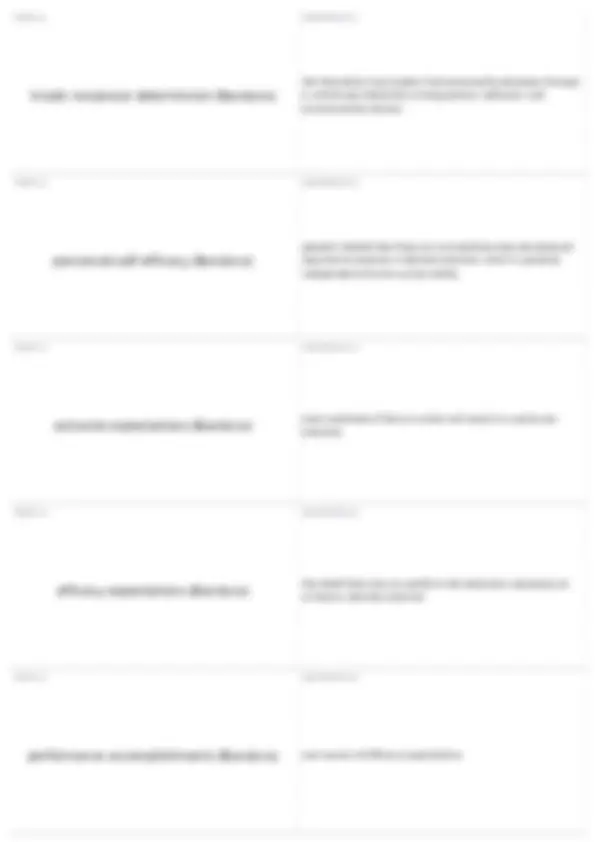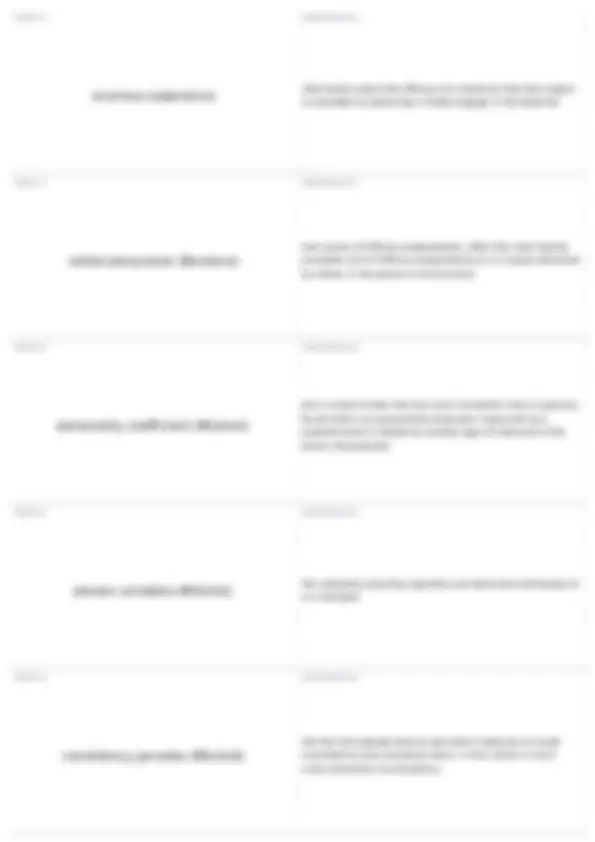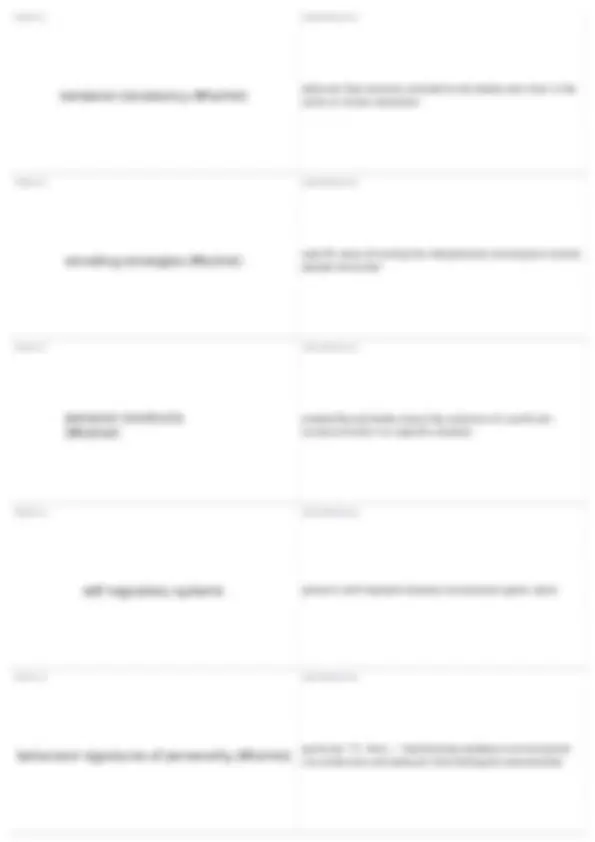





Study with the several resources on Docsity

Earn points by helping other students or get them with a premium plan


Prepare for your exams
Study with the several resources on Docsity

Earn points to download
Earn points by helping other students or get them with a premium plan
Community
Ask the community for help and clear up your study doubts
Discover the best universities in your country according to Docsity users
Free resources
Download our free guides on studying techniques, anxiety management strategies, and thesis advice from Docsity tutors
Definitions of key terms related to rotter's social learning theory and bandura's social cognitive theory. Topics include behavioral potential, reinforcement value, expectancy, specific expectancy, generalized expectancy, psychological situation, locus of control, internal locus of control, external locus of control, person variables, triadic reciprocal determinism, perceived self-efficacy, outcome expectations, efficacy expectations, performance accomplishments, vicarious experience, verbal persuasion, personality coefficient, consistency paradox, temporal consistency, encoding strategies, personal constructs, and self-regulatory systems.
Typology: Quizzes
1 / 6

This page cannot be seen from the preview
Don't miss anything!




the likelihood that a given behavior will occur in a particular situation TERM 2
DEFINITION 2 a person's subjective preference for a given reinforcer relative to other possible reinforcers in a given situation TERM 3
DEFINITION 3 the subjective probability that a given behavior will result in a given reinforcer TERM 4
DEFINITION 4 a person's subjective estimate of the chances of obtaining a particular outcome by performing a particular behavior TERM 5
DEFINITION 5 expectations that apply across a range of situations
the existing circumstances from each individual's perspective TERM 7
DEFINITION 7 the generalized way that the person perceives the source of his or her outcomes TERM 8
DEFINITION 8 the belief that the reinforcements one gets in life are due to one's own effort and ability TERM 9
DEFINITION 9 the belief that the reinforcements one gets in life are due to chance factors or factors that are out of one's control TERM 10
DEFINITION 10 thoughts and feelings that influence behavior
information about the efficacy of a behavior that the subject is provided by observing a model engage in the behavior TERM 17
DEFINITION 17 one source of efficacy expectations, often the most readily available orm of efficacy expectations as it is easily delivered by others in the person's environment TERM 18
DEFINITION 18 term coined to describe the small correlation that is typically found when any personality dimension measured by a questionnaire is related to another type of measure of the same characteristic TERM 19
DEFINITION 19 the relatively enduring cognitive and behavioral attributes of an individual TERM 20
DEFINITION 20 the fact that people tend to see other's behavior as quite consistent across situations when, in fact, there is much cross-situational inconsistency
behavior that remains consistent and stable over time in the same or similar situations TERM 22
DEFINITION 22 specific ways of sorting the interpersonal and physical events people encounter TERM 23
DEFINITION 23 probability estimates about the outcome of a particular course of action in a specific situation TERM 24
DEFINITION 24 person's self-imposed rewards and personal goals; plans TERM 25
DEFINITION 25 particular "if...then..." relationships between environmental circumstances and behavior that distinguish personalities